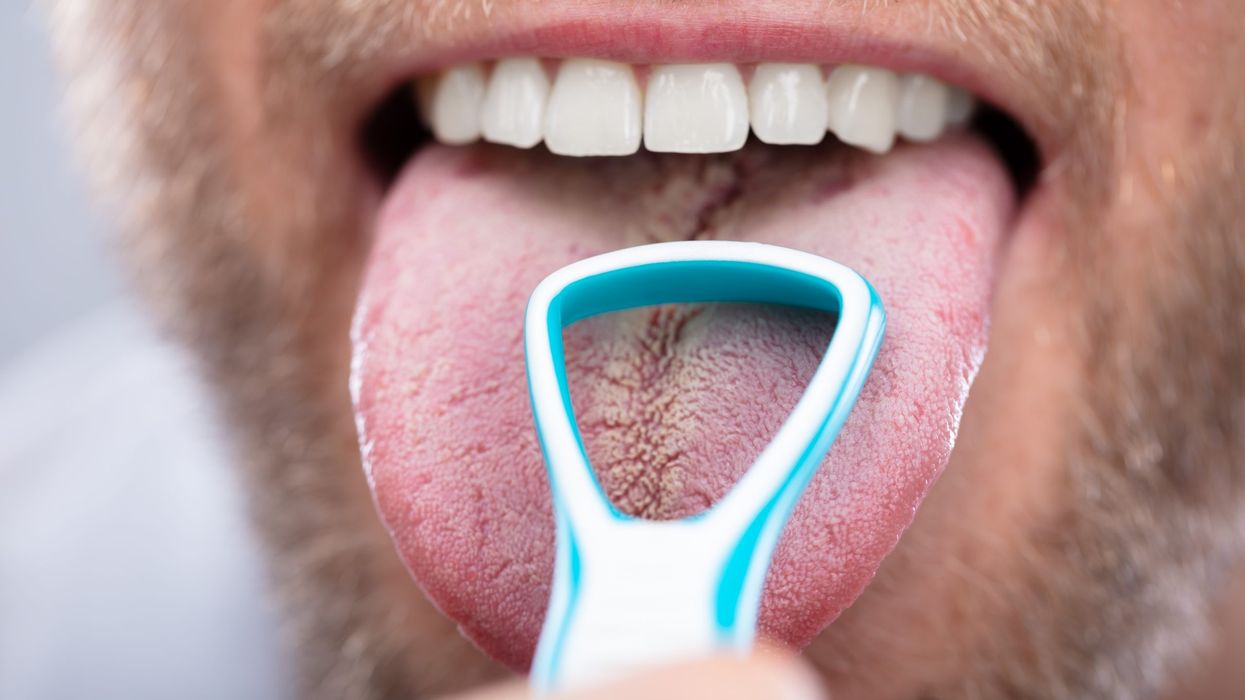There are plenty of videos on TikTok that advocate fads claiming to boost health and many experts have warned that these are either unsafe or ineffective.
However, according to dentists, one TikTok trend, known as tongue scraping, actually boosts oral hygiene, the Daily Mail informs.
Tongue scaping involves using a U-shaped device that helps to remove debris from the tongue which can help get rid of bad breath as well as keep gum inflammation and cavities at bay, said Dr Sundeep Patel, a cosmetic dentist, based at Waldron Dental Clinic in south east London.
Scraping of the tongue helps to remove the white film on the tongue which reportedly is a build-up of bacteria, dead cells, and debris.
This technique is also supposedly more effective than just flossing and brushing.
According to experts, a host of more than 200 different types of germs live on the tongue and scraping the tongue can get rid of harmful bacteria in the mouth.
Advocates of this practice which involves lightly scraping of the tongue from back to front around three to four times after brushing and flossing, get the device from pharmacies at a cost of £3.
These devices are available in copper, plastic, and steel.
Dr Patel is reported as saying, 'Tongue scraping is a fairly novel oral trend that is likely to become hugely popular in 2023.
'The act of tongue scraping has often been limited to the wellness industry, but it is now making its way into the mainstream and becoming a routine step within your oral hygiene routine.'
He adds that though scraping the tongue may not be as important as flossing or brushing the teeth, it can certainly help to keep the mouth clean when added to a routine.
Though some people clean their tongue with their toothbrush or mouthwash but apparently a tongue scraper is more thorough and can clean the tongue better.
Dr Patel is quoted as saying, 'Often after we eat or drink our tongue can feel fuzzy or like it needs a clean.
'So, morning and night scraping your tongue can help to remove bacteria from that area to prevent any dental issues down the line.'
He adds, 'Tongue scrapers are pretty effective in removing bacteria from the tongue, and in some cases a dentist would suggest purchasing a scraper and including it in your oral hygiene routine.'
Food particles and bacteria sitting on the tongue can cause bad breath and tongue scraping can help to reduce this.
'Removing these will help to keep your mouth clean,' said Dr Patel.
This practice can also decrease the risk of gum disease by discarding the particles that can aggravate gums leading to inflammation, which in turn could lead to gum disease.
Getting rid of additional bacteria in the mouth also reduces the risk of cavities developing.
Dr Patel informs, 'The more we can help to keep our mouth clean the less likely it is that we will suffer with tooth decay or other dental complications.'
Studies have also suggested that after two weeks of scraping the tongue regularly and keeping it clean, taste buds will work better and it will be easier to taste food.
'Tongue scraping can also improve the appearance of the tongue, when often our tongue has a white coating, scraping can remove this and leave it looking clean and healthy,' adds Dr Patel.
Advising the use of a toothbrush to clean the tongue, Dr Linda Greenwall, founder of Dental Wellness Trust, is quoted as saying, 'There are thousands of bacteria that can be removed this way.
'Most of the halitosis agents (bacteria that produce bad odours) also embed in the tongue so tongue cleaning is essential.
'Brushing also removes coffee stains from the tongue.
'But remember, what is absolutely necessary is to brush at least twice a day with a fluoride toothpaste, floss daily and visit your dentist regularly.'




